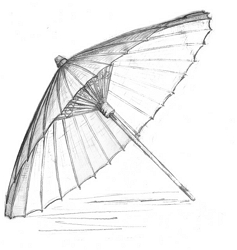 You have learnt in part 1 that self-esteem is the reputation you have acquired with yourself.
You have learnt in part 1 that self-esteem is the reputation you have acquired with yourself.
You know what it’s like with the reputation you have with other people, right? Once you have acquired it in one place, it’s very difficult to change it. Especially a bad one. Even if you literally reverse your behaviour, it takes consistent and dedicated effort for several years to change your reputation with one group of people if you have acquired a bad name for yourself.
I remember a scenario in my life which shows this very clearly. When I was in high school, there was a girl in my class who was very good with computers, so that even teachers used to ask her for help whenever something happened. She was always very helpful. She was good with her studies too. So, we all looked up to her for her cleverness. Everyone wanted to be her friend.
But one day, she was caught lying. She claimed that her family home had been destroyed in a fire. As a result she was rolling in sympathy and kindness from everyone … until the truth of the story was found out. The whole class was ringing with news of her complete fabrication. After that, she was shunned for the rest of our final year in school.
I ran into her again a few years later. Even though I said hello to her, I didn’t suggest we meet up again or continue to be friends. I still didn’t trust her and remembered her as the girl who lied rather than as the girl who was a computer genius. That image of her as a liar had stuck even though she may very likely have changed since then. Looking back as a mature adult, I’m sure I saw the look of embarrassment in her eyes when she was talking to me on that day. Her self-esteem must have suffered a huge blow. I feel sorry for her now.
So, if it’s that difficult to change your reputation with other people, imagine how much harder it would be to change your reputation with yourself.
A lot of people (including me) have low self-esteem. The reputation they have acquired with themselves is a bad one.
So, how do people acquire this bad reputation with themselves?
Although it can be acquired throughout negative childhood experience, it is significantly affected by actions we take as adults. I won’t go into any details of the childhood factors as this is an area where only a competent therapist may be able to help if you lived through a particularly bad experience. But, I can describe what actions make or break your self-esteem as adults since it is the area where we can make a noticeable difference.
Here are some scenarios from my own experience that have lowered my reputation in my own eyes.
At university, I knew I should have started preparing for my dissertation early. But instead, I put it off till the last minute.
Reputation I acquired with myself: I lack discipline. I am lazy.
I know I should work on my blog every day rather than wandering online at the end of the work day. But I make excuses that I’m tired and just want to entertain myself and browse shopping sites. I have left those tasks I need to do for my blog unfinished despite making promises to myself that I would work on them every day.
Reputation I have with myself: I broke my own promises. I am unreliable.
When my uncle praised his wife behind her back for being a very good mother, I said, “Why don’t you tell her that? She would feel appreciated.” My uncle replied “You can’t treat women like that. If you show some appreciation, they’ll become big headed.” I felt offended. But I didn’t say anything. I should have said that I strongly disagreed with his attitude.
I subconsciously label myself: a coward.
These are only some of the examples. I have countless and more serious incidents which make me feel so ashamed of myself. When I don’t do what I have promised myself I will do, I betray myself. When I do something I know I shouldn’t have, I betray myself. Nobody else knows. Only I know. But that “only I know” is the thing that matters the most.
On the other hand, if I express my own opinions in an appropriate context or take some actions that I believe are right but other people think are wrong, I don’t betray myself. My self-reputation won’t suffer even though my reputation with other people may suffer.
Basically, self-esteem is for the most part internally generated. It is largely generated by actions we have taken or not taken over our lifetime.
Note the word “action.” That means self-esteem can’t be achieved simply by reiterating “I love myself” over and over again. It has to be achieved by actions that you do every day consistently over a long period of time.
So, what are those actions you can take?
There are six main areas where you can take action that will significantly raise your self-esteem. You will find them in part 3.
References
Branden, N. (1995). Six Pillars of Self-Esteem. New York: Random House USA Inc.
Branden, N. (1989). How to Raise your Self-Esteem. New York: Random House USA Inc.
